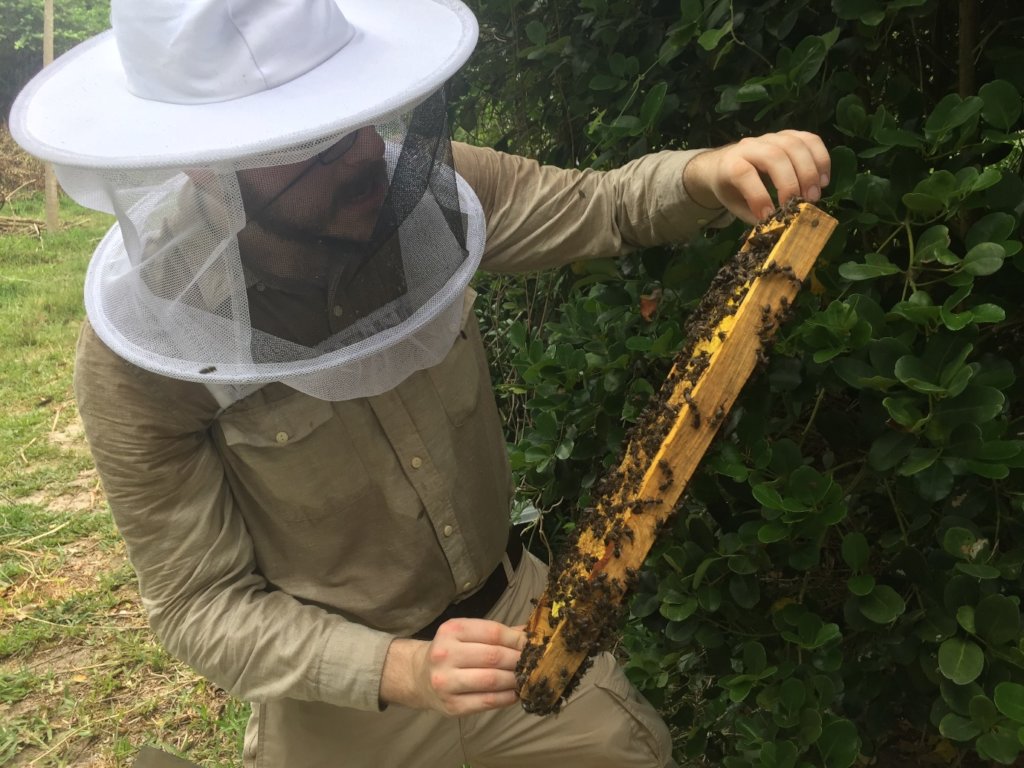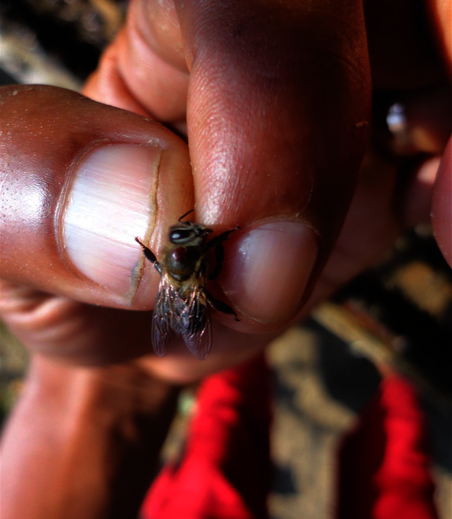By Cameron Bell | Project Development Officer
“I want to learn how to defeat the enemy of the bee". That’s how one of Project Renitantely’s beekeepers spoke of his struggle to cope with the impacts of the varroa mite. Since arriving in Madagascar in 2010, the parasitic mite has caused catastrophic losses for beekeepers across the island. Varroa infests hives, spreading viruses and weakening bees and without effective treatment, a varroa infestation can quickly lead to the collapse of an entire honeybee colony.
SEED Madagascar has now positioned itself at the forefront of the fight against varroa in Madagascar. SEED has partnered with David Peck of Cornell University, a leading researcher in the field of behavioural interactions between honeybees and varroa mites. David has joined the Renitantely team to investigate whether the endemic Malagasy honeybee Apis melifera unicolor is beginning to develop some level of resistance to the varroa mite, as has been reported by some Renitantely beekeepers.
Currently, beekeepers in Madagascar rely on chemical treatments to treat varroa infestations, which reduce the quality of honey and wax produced. Should David’s research indicate that some Malagasy honeybees are indeed displaying resistance to varroa, the project would be presented with a great opportunity to tackle the threat in new ways.
One exciting possibility is the potential to develop a breeding programme to accelerate the development of varroa resistance amongst Malagasy bees. This would involve training beekeepers to identify colonies that show evidence of varroa resistance and to split these colonies to populate new hives, therefore increasing the varroa-resistant honeybee population.
The prospect of varroa-resistant bees in Madagascar is cause for great optimism. Free from the damage caused by the parasite, beekeepers would see their honey and wax yields increase and their livelihoods become more secure.
Project reports on GlobalGiving are posted directly to globalgiving.org by Project Leaders as they are completed, generally every 3-4 months. To protect the integrity of these documents, GlobalGiving does not alter them; therefore you may find some language or formatting issues.
If you donate to this project or have donated to this project, you can recieve an email when this project posts a report. You can also subscribe for reports without donating.
Support this important cause by creating a personalized fundraising page.
Start a Fundraiser
